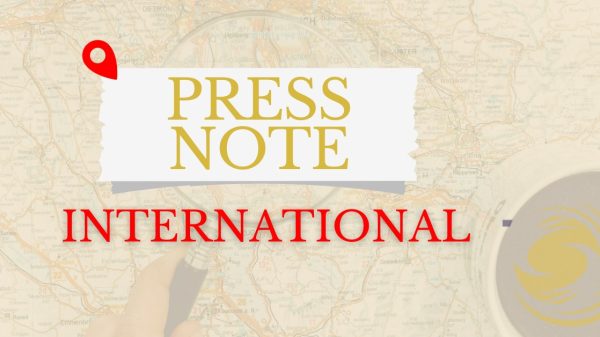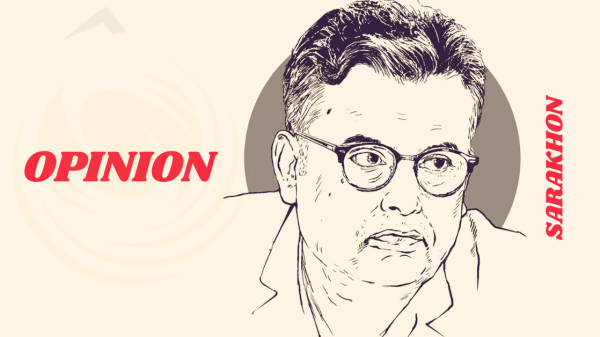U.S. Threatens Withdrawal from Ukraine Peace Talks Amid Escalating Conflict

- Update Time : Friday, April 18, 2025

The United States has signaled a potential withdrawal from peace negotiations with Russia concerning the ongoing conflict in Ukraine. Secretary of State Marco Rubio stated that unless tangible progress is observed within days, the U.S. may abandon its mediation efforts. This development follows recent discussions in Paris involving U.S., European, and Ukrainian officials, where a phased ceasefire and security guarantees were deliberated. Concurrently, Russian forces have intensified missile and drone attacks on Ukrainian cities, including Kharkiv and Sumy, leading to civilian casualties and infrastructure damage. A previously agreed-upon moratorium on targeting energy facilities has expired, with both sides accusing each other of violations. Additionally, controversy surrounds a proposed U.S.-Ukraine minerals deal, with questions about whether future profits would repay past military aid. President Zelenskyy has also accused China of supplying weapons to Russia, an allegation Beijing denies. The shifting U.S. political stance, with reduced military aid and a more conciliatory approach toward Moscow, has further complicated Western efforts to achieve a sustainable peace.
China Criticizes U.S. Tariffs, Advocates for Anti-Bullying Measures in Global Trade
China’s Foreign Minister Wang Yi has condemned what he describes as “unilateral bullying” and protectionism, implicitly criticizing the United States’ imposition of tariffs up to 145% on Chinese imports. These measures have escalated trade tensions between the two nations. In response, China has implemented counter-tariffs and is actively seeking support from countries in the Global South and Southeast Asia to oppose U.S. trade policies. President Xi Jinping has recently urged Vietnam and Cambodia to join China in resisting these actions. Furthermore, China plans to convene an informal United Nations Security Council meeting on April 23 to directly address and criticize U.S. economic measures. Despite some nations, like Japan, appealing to the U.S. for tariff relief, China maintains that mutual respect is essential for any negotiations. Meanwhile, President Trump has hinted at a possible easing of tariffs, acknowledging that excessive duties might deter consumer purchases, indicating a potential shift towards negotiation.
Europe Faces Widespread Travel Disruptions Amid Strikes During Easter Holidays
Travelers across Europe are experiencing significant disruptions during the Easter holidays due to a series of planned strikes. In France, the Sud Rail union has announced strikes affecting SNCF train controllers from April 17 to June 2, potentially impacting weekend services. Additional strikes by SNCF train drivers and TGV controllers are scheduled for May. In the United Kingdom, over 100 ground handling staff at Gatwick Airport, employed by Red Handling, are striking over pension concerns from April 18 to 22, leading to anticipated delays. Passengers flying with airlines such as Norwegian, Delta, TAP, and Air Peace are advised to check directly with their carriers. Meanwhile, in the Canary Islands, approximately 80,000 hotel and hospitality workers are striking on April 17 and 18 over pay disputes. The UK Foreign Office has updated its travel advice for Spain accordingly. Travelers are urged to verify their plans, consult with airlines and providers, and review travel insurance coverage, as some disruptions may not be eligible for compensation under “extraordinary circumstances” rules.
U.S. Declares Record Number of National Emergencies, Sparking Constitutional Concerns
President Donald Trump has declared an unprecedented number of national emergencies within the first 89 days of his term, utilizing broadly defined powers to implement aggressive policies on tariffs, energy, and border control without congressional approval. Legal scholars express concern that this trend may signify a shift toward a permanent state of emergency, potentially undermining constitutional checks and balances. Internationally, institutions like the World Trade Organization and the International Monetary Fund acknowledge the validity of Trump’s critiques regarding global economic dependence on the U.S., indicating a shift in trade dynamics. Domestically, proposed federal budget cuts threaten programs such as Head Start, which serves low-income families in rural and Republican areas. Additionally, tensions are rising among Democrats over plans by DNC Vice Chair David Hogg to challenge older incumbents. The administration’s actions continue to stir controversy as it implements sweeping reforms across various government sectors.
U.S. and Iran Engage in Indirect Nuclear Talks Amid Rising Tensions










Leave a Reply